Coral reef: Perfectly pristine reef discovered by marine explorers
- Published
- comments
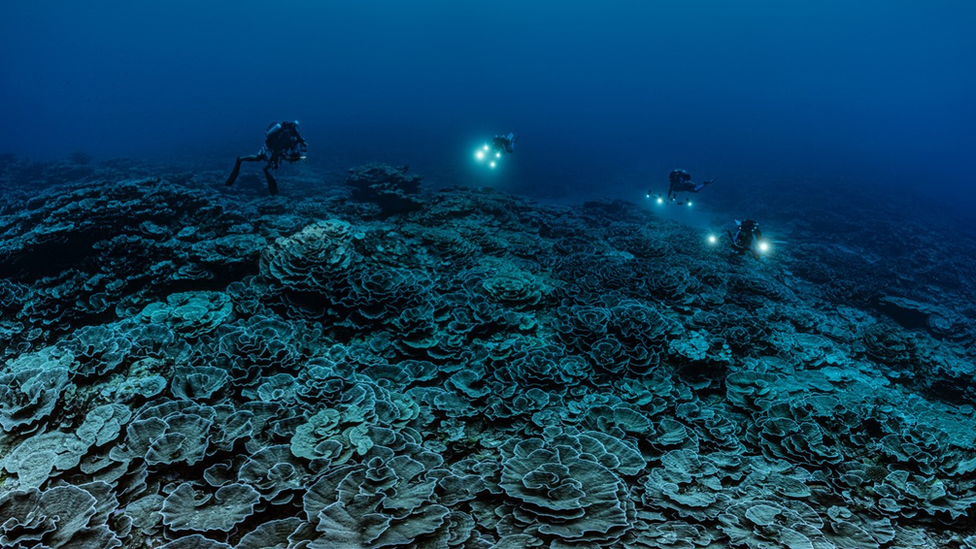
Underwater photographer Alexis Rosenfeld described seeing the giant reef as "magical"
A giant coral reef has been found off the coast of Tahiti, French Polynesia in the Pacific Ocean.
At 30 metres below the surface, marine explorers described the new find as a "magical" discovery.
The reef system extends for two miles and is said to be one of the largest ever discovered at that depth.
There are probably many more of these ecosystems "we just don't know about", said Dr Julian Barbiere, who is part of the team who led the mission.
"We should be working to map them and to protect them," he said.
"A work of art"
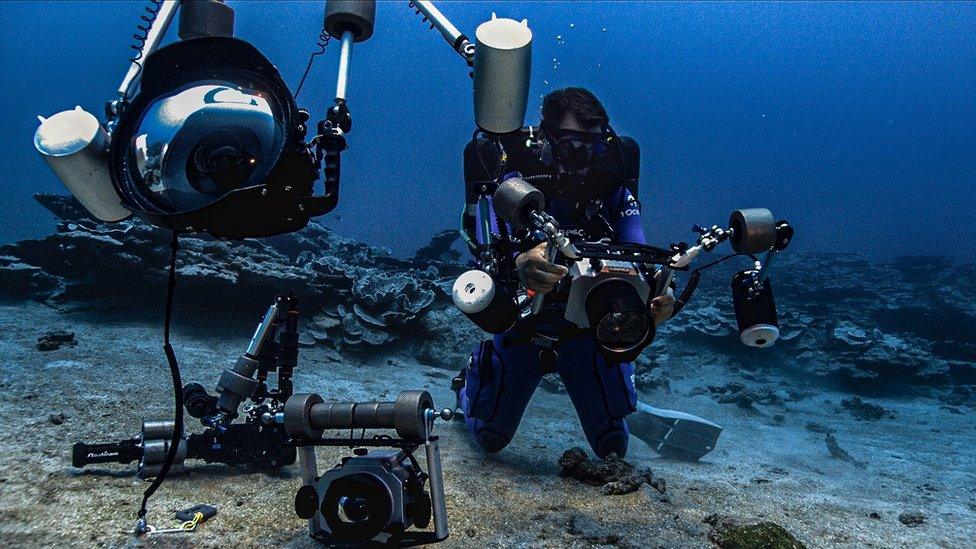
The marine explorers were on a deep dive mission to map the seabed in the region, and were surprised to find such a large reef ecosystem at this depth.
"We still associate corals with the shallowest tropical seas but here we find a huge previously unknown coral reef system", said Professor Murray Roberts - a marine scientist from the University of Edinburgh.
The discovery proves we still have a lot to learn about our oceans.
It was magical to witness giant, beautiful rose corals stretching as far as the eye can see
Coral reefs are among one of the world's most threatened ecosystems. Many animals use the reefs as a home; it offers them food and protection from predators.
But they are very vulnerable to pollution, and a rise in sea temperatures can have a dramatic impact on the health of a reef - including coral bleaching - evidence of which we have seen across the world.
This piece was filmed in February 2020, before COVID-19 restrictions were implemented.
However this new discovery offers some hope that if reefs can survive at this depth that they may be better protected from global warming.
"As shallow waters warm faster than the deeper waters we may find these deeper reef systems are refuges for corals in the future, says Prof Roberts.
We need to get out there to map these special places, understand their ecological role and make sure we protect them for the future."
Giant reef in "very good state"
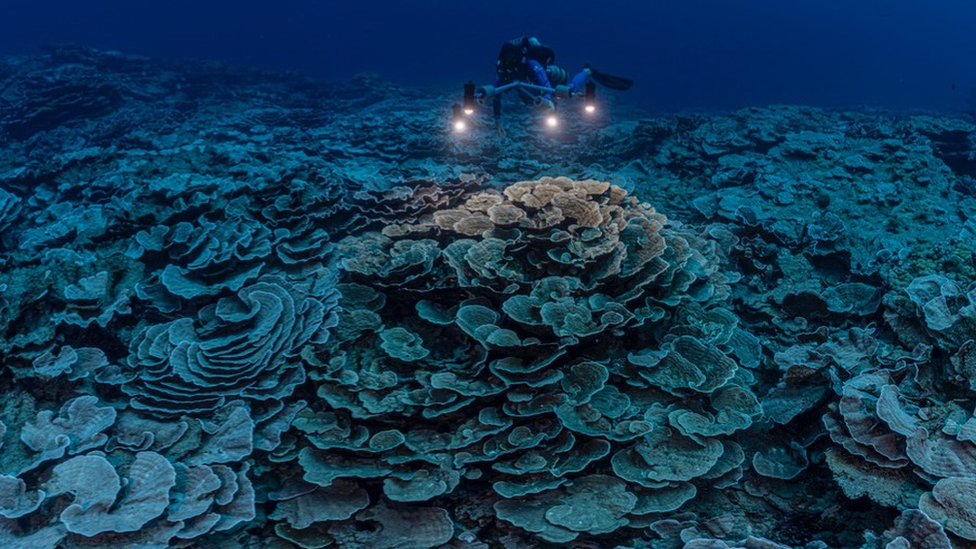
While this reef is considered unusually deep, there is still light in the ocean "twilight zone" for its algae to survive
There is currently "no evidence" this reef had been damaged by the pressures many coral reefs are under, Dr Barbiere said, and suggests it's depth is one of the main reasons it remains in a "very good state".
25% of marine species live in and around coral reefs, so the next step will be for scientists to learn what animals can be found there.
- Published3 March 2021
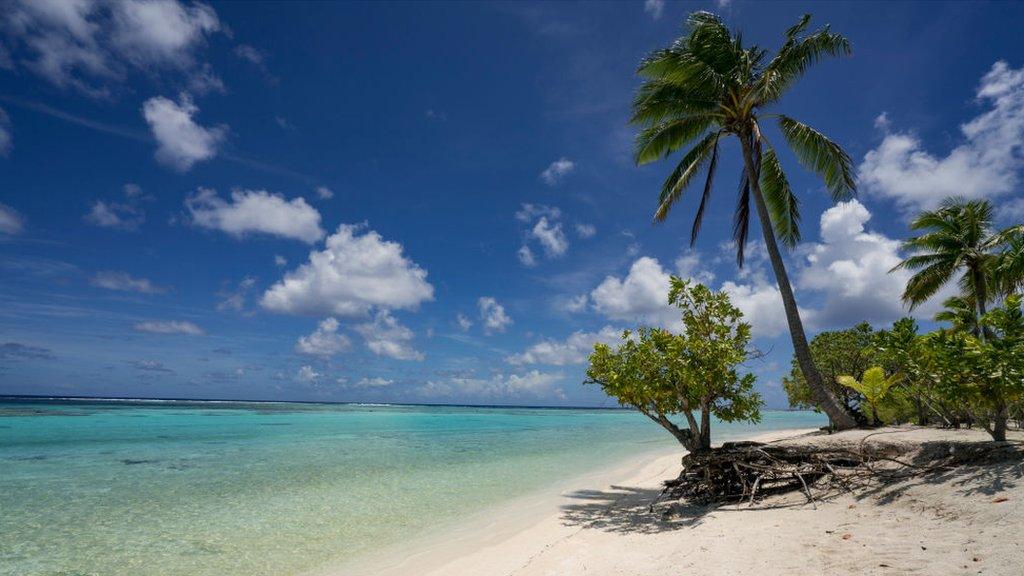
- Published20 January 2020
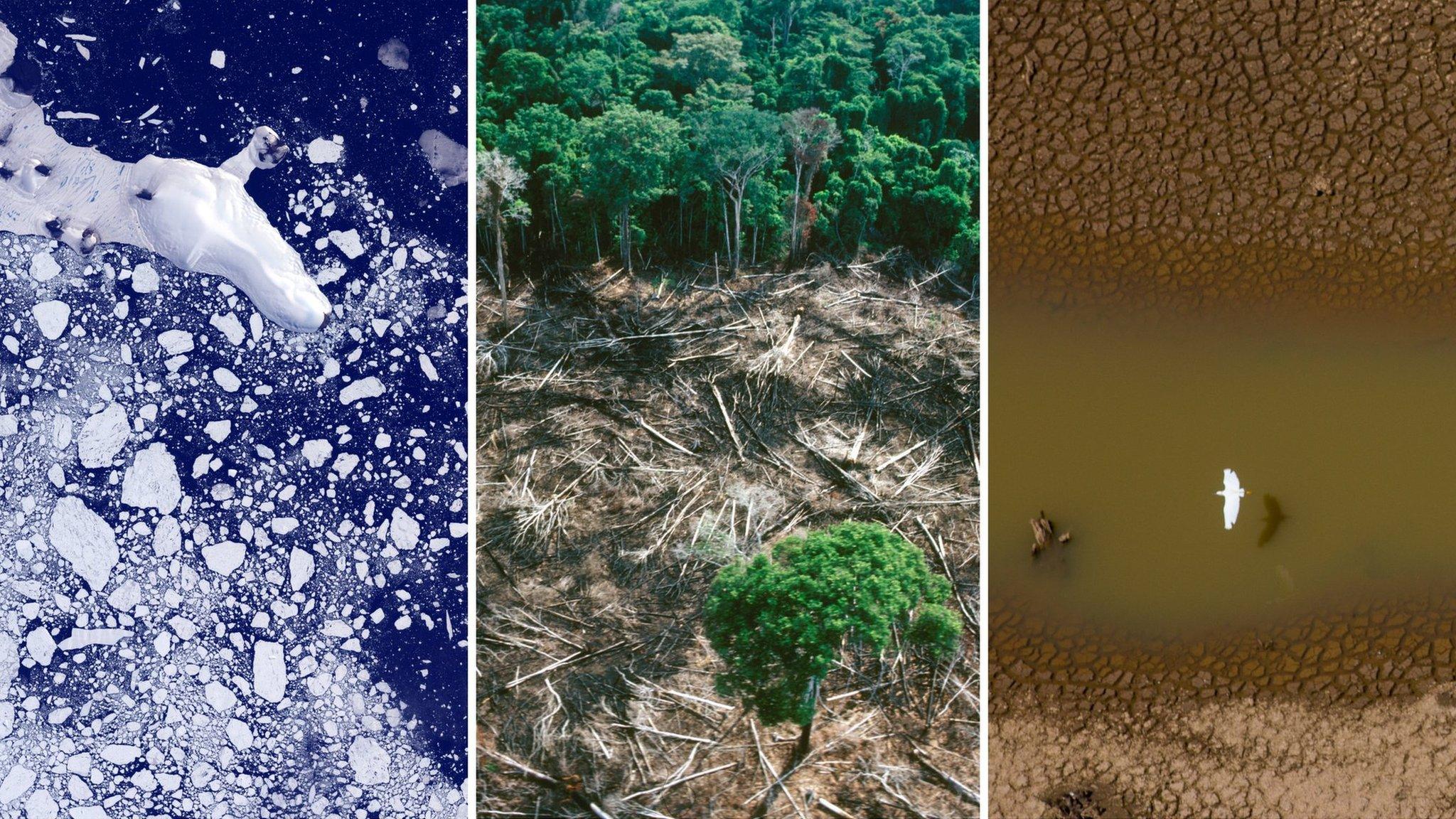
- Published16 August 2023

